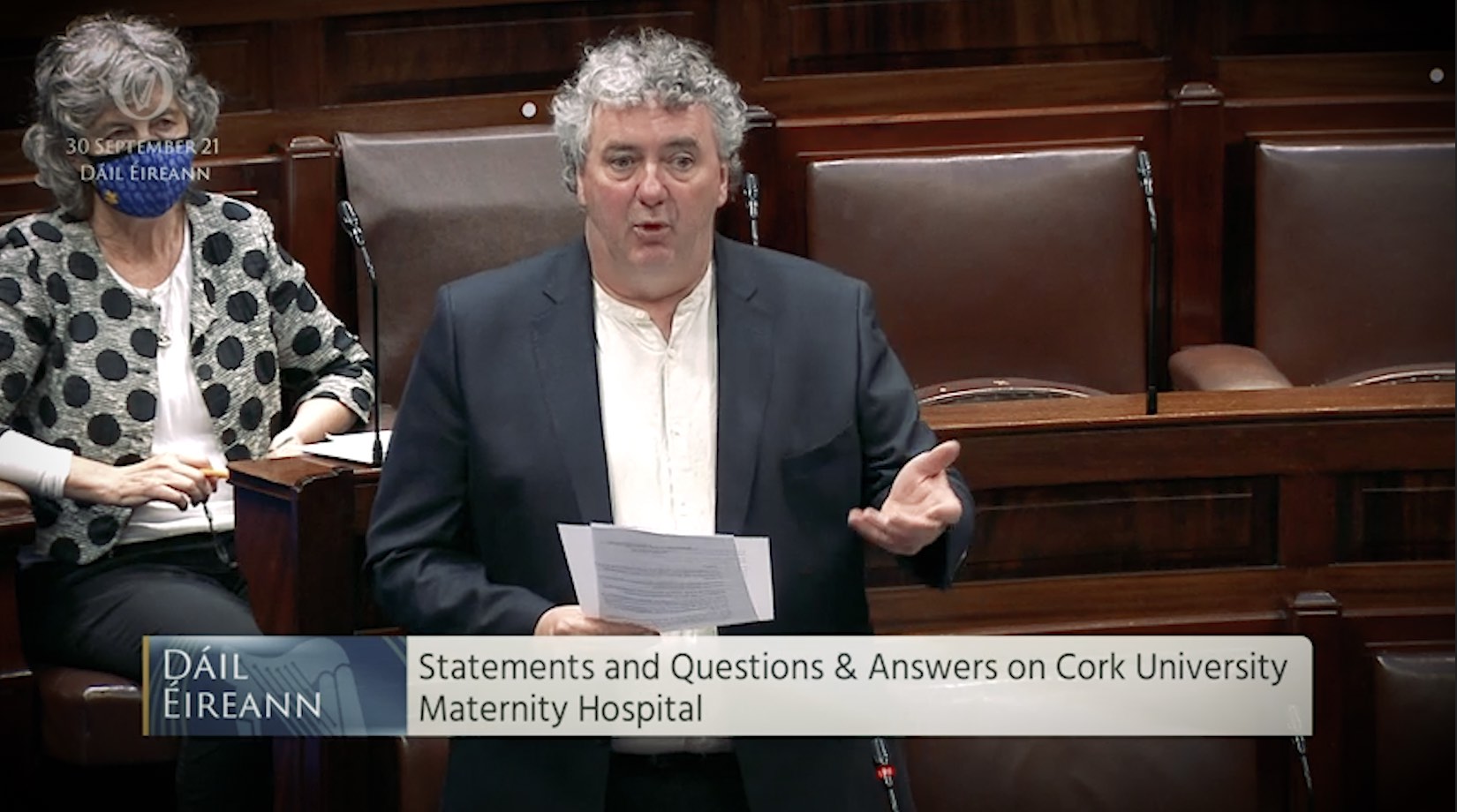- Pringle: We need a policy that recognises the importance of inshore fishing
- Pringle: Disabled people and carers face crisis of State neglect
- Pringle: Failed FF/FG housing policies forcing people to put their lives on hold
- Pringle welcomes Donegal council motion on Occupied Territories Bill: ‘We cannot stand by in the face of genocide’
Pringle: Hospitals need to reassure bereaved parents
- Updated: 1st October 2021

Independent TD for Donegal, Thomas Pringle, has said that all hospitals need to reassure parents, after it was revealed that Cork University Maternity Hospital sent baby organs abroad for incineration without the consent of bereaved parents.
Deputy Pringle addressed the Dáil on Thursday evening during statements on the Cork hospital, where an RTÉ Investigates programme revealed that multiple baby organs had been incinerated abroad without the consent or knowledge of bereaved parents.
Deputy Pringle said: “This must be a truly shocking situation for the families and my thoughts are with them at this very difficult time.”
He asked: “How do we know that this is the only hospital in the State where this has happened? I think that is the question that is burning for every parent who has lost a baby in maternity wards all over the State today.”
The deputy said he contacted management at the Saolta University Health Care Group, which covers Letterkenny University Hospital and Sligo University Hospital, asking them to state categorically that the situation does not exist there. In response, Saolta said all hospitals in the group follow HSE guidelines and are compliant with the national standards, which ensure that any retained organs are buried or cremated in accordance with parents’ wishes.
The deputy questioned whether the Cork hospital would have given that same reply six months before the story broke, saying, “I think we need more reassurance than that.”
He said: “All parents need to be reassured now.”
Deputy Pringle said: “Then we hear the HSE excuse for everything now: The hospital group said the delays were due to challenges sourcing appropriate external expertise during the pandemic and, more recently, the cyberattack on the HSE, but it now expects the review will be finalised in late October or November.
“It is amazing that after all that has gone on in the recent past that this would still be allowed to happen in the health services. But I think it shows the state of ‘lack of management’ rather than management in the health services,” he said.
The deputy said he found it “amazing that these issues seem to arise in relation to women’s health care in Ireland.
“Why have we never had a scandal in relation to prostate cancer in our health services? Or why do we never have a scandal in relation to testicular cancer?” he asked.
Deputy Pringle concluded: “I think that as part of any investigation that question has to be answered as well and perhaps that is an indication of where the systemic problem is.”



